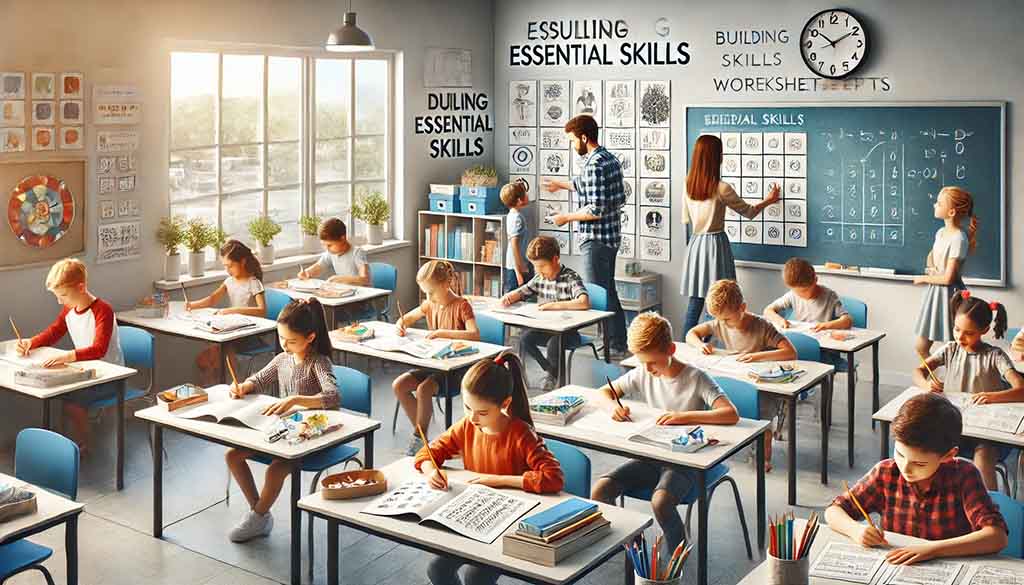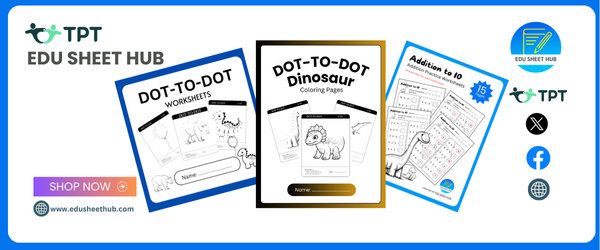How Worksheets Help Students Build Essential Skills
Worksheets have long been a cornerstone of education, offering students a structured way to learn, practice, and apply knowledge. Beyond being simple exercises, worksheets are powerful tools that help students build essential skills necessary for academic success and beyond. This article explores the critical role of worksheets in skill development and why they remain an indispensable part of modern education.
1. Reinforcing Foundational Skills
Worksheets are particularly effective in helping students master the basics.
- Math Skills: Math worksheets provide repeated practice in calculations, problem-solving, and logical reasoning. By working through problems step-by-step, students strengthen their understanding of mathematical concepts.
- Reading and Writing Skills: Language arts worksheets improve reading comprehension, spelling, and sentence structure. Activities such as fill-in-the-blank or reading passages help students develop fluency and accuracy.
- Science Skills: Worksheets in science guide students through experiments, hypothesis creation, and data analysis, fostering curiosity and critical thinking.
2. Encouraging Critical Thinking
Critical thinking is an essential skill in both academics and life. Worksheets that include puzzles, problem-solving scenarios, or open-ended questions encourage students to analyze information, evaluate solutions, and think independently. For example:
- Logic Puzzles: Help students recognize patterns and develop deductive reasoning.
- Case Studies: Allow students to apply theoretical knowledge to real-world problems.
3. Promoting Independent Learning
Worksheets empower students to take control of their learning. With clear instructions and focused tasks, students can work independently, building self-discipline and confidence. This independence fosters:
- Self-Motivation: Completing a worksheet successfully encourages students to take on more challenges.
- Accountability: Students learn to manage their time and take responsibility for their work.
4. Enhancing Problem-Solving Skills
Problem-solving is a key competency that worksheets help to develop. Whether through mathematical equations, scientific experiments, or writing prompts, students learn to approach challenges systematically. Worksheets:
- Break down complex problems into manageable steps.
- Teach students to analyze different angles before arriving at a solution.
- Encourage persistence, as students often need to attempt multiple approaches.
5. Supporting Creativity
Worksheets are not limited to rote exercises; they can also inspire creativity.
- Art Worksheets: Encourage students to experiment with colors, shapes, and designs.
- Creative Writing Worksheets: Stimulate imagination with story prompts or poetry exercises.
- Brainstorming Activities: Help students explore innovative ideas in group or solo tasks.
6. Improving Focus and Attention to Detail
Working through a worksheet requires students to concentrate on the task at hand. Activities such as solving equations, identifying grammatical errors, or drawing diagrams train students to pay attention to details and improve accuracy.
7. Developing Organizational Skills
Worksheets provide a structured format that teaches students how to organize information effectively. Examples include:
- Timelines: Help students understand historical sequences.
- Graphic Organizers: Assist in categorizing and summarizing information.
- Step-by-Step Instructions: Guide students in completing tasks methodically.
8. Measuring Progress and Identifying Gaps
Worksheets are valuable assessment tools. By reviewing completed worksheets, teachers and parents can:
- Track a student’s progress over time.
- Identify areas where additional support is needed.
- Adjust teaching strategies to suit the learner’s needs.
9. Catering to Diverse Learning Styles
Different students have different ways of learning, and worksheets cater to these variations:
- Visual Learners: Benefit from diagrams, illustrations, and charts.
- Tactile Learners: Engage with hands-on worksheets involving cutting, matching, or coloring.
- Auditory Learners: Pair worksheets with verbal explanations or discussions.
10. Supporting Collaboration and Teamwork
While often used for independent tasks, worksheets can also promote collaboration. Group activities using worksheets encourage students to share ideas, discuss solutions, and learn from their peers.
Conclusion
Worksheets are more than just exercises—they are tools for skill-building, critical thinking, and personal development. By incorporating structured tasks, promoting creativity, and encouraging independent learning, worksheets help students develop the foundational and advanced skills they need to succeed in school and beyond.
Whether used in a classroom, at home, or in a homeschooling environment, worksheets provide endless opportunities for growth and learning. Explore a range of worksheets today to see how they can enhance your student’s educational journey.


Facebook Comments